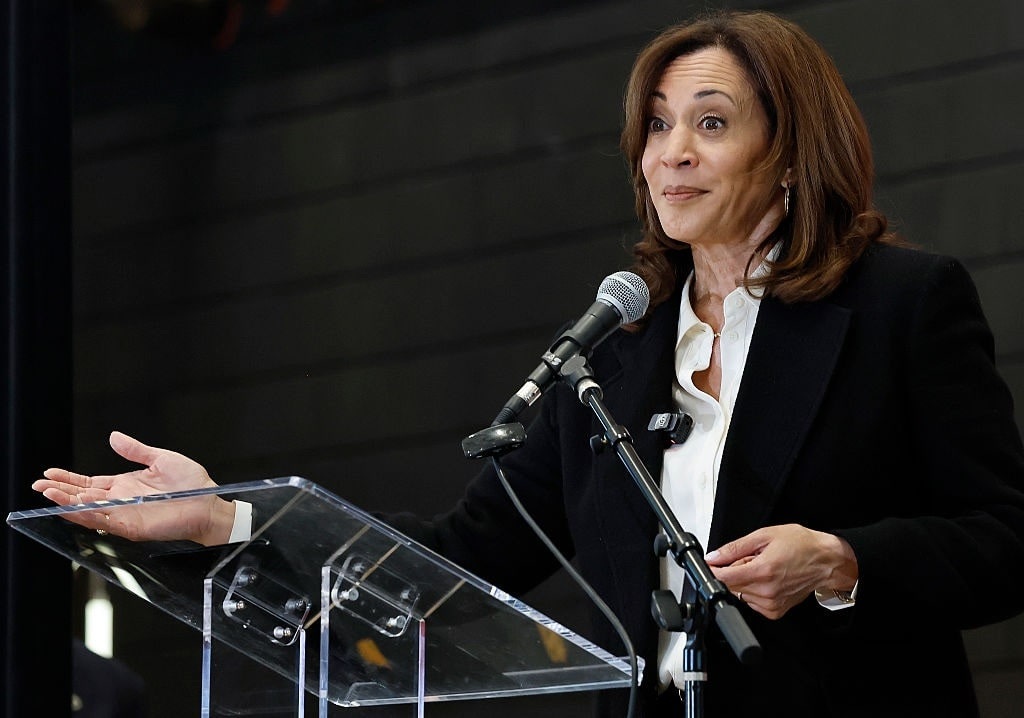


We might have thought Kamala Harris would realize how much her party’s reputation has been tarnished in the wake of her soul-crushing defeat in the 2024 presidential election. And we might have thus expected her to exercise some level of restraint in parceling out blame. But instead, she has explained away her loss by blaming numerous major figures on her own side, from Joe Biden, Josh Shapiro, and Gavin Newsom to the former president’s inner circle, campaign advisors, and political operatives. Few prominent Democrats were spared her thinly veiled wrath.
The last thing the Democratic Party needed was a self-serving retrospective by its feckless stand-in presidential nominee, whose just-released memoir 107 Days serves as a naked deflection of personal responsibility for her ugly defeat. In a scorched-earth rebuke to the many in her own party who swallowed their profound misgivings about her and worked tirelessly to get her elected, Kamala Harris has thrown gasoline on her party’s raging fire. And many on the left are furious, though undoubtedly relieved that the former vice president, by trashing her allies, appears to have signaled that she has no further plans to run for office. It’s hard to stand again for election when you have alienated almost everyone in your own orbit in order to write a book designed to enrich your own coffers.
It’s as if both Kamala and the Democratic party writ large are telling each other, “don’t let the door hit you on the way out.”
Who did Harris throw under the bus and why? For a candidate whose sole qualification for the vice presidency was DEI, specifically her race and gender, it is particularly rich that she claims to have wanted Pete Buttigieg as her running mate but passed him over because he is gay. She claims a black woman running with a gay man was “too big of a risk,” a bridge too far for many Americans. And while she might be correct, all this has accomplished is to embarrass Buttigieg, who responded by saying Harris should be “giving Americans more credit.”

Then there is another 2028 presidential aspirant, California Gov. Gavin Newsom, who, she says, never returned her phone call after Biden pulled out of the race and endorsed her. Why was it necessary to reveal such a private matter? To sell books, one suspects, and to add to the Rodney Dangerfield narrative that she got no respect.
Indeed, in writing about the voluminous criticism of her performance as VP, Harris laments that “the president’s inner circle seemed fine with … unfair or inaccurate” stories about her and that it even “seemed as if they decided I should be knocked down a little more … getting anything positive said about my work or any defense against untrue attacks was almost impossible.” Referring to her widely ridiculed performance as border czar, she added that, “no one in the White House comms team helped me to effectively push back and explain what I had really been tasked to do” or “highlight any of the progress I had achieved.” She asserts of the Biden team, “Their thinking was zero-sum: If she’s shining, he’s dimmed.” In writing much about her own loyalty to her president, which she complains was not returned in kind, Kamala has now made Biden and his advisors look even worse than they did during his disastrous administration, if that’s even possible.
And Joe Biden himself does not escape Kamala’s pointed criticism. Denying what everyone else could see, she refuses to admit that he was incapable of continuing to serve as president. But she cites the “recklessness” of allowing the former president to make the decision by himself about running for reelection, arguing that the choice should not have been “left to an individual’s ego.”
To place Kamala’s tell-all book in perspective, none of the Republican candidates defeated for the presidency in at least the last 50 years followed up by writing a book trashing their colleagues or even their opponents. Only Hillary Clinton, the first candidate beaten by Trump, went scorched earth, but that was largely a tortured rebuke of Donald Trump and the many sworn enemies on the right whom she labeled as deplorable and irredeemable.
How was Kamala fortunate enough to be showered with at least a billion and a half dollars in campaign contributions, and yet was left with at least $20 million in debt? How is it that some 92% of her initial hires as VP, including most of her senior executives, abandoned her office, with many characterizing her management style as dysfunctional, or worse? Why would she constantly complain that she had only 107 days to make her case when she rejected myriad interview opportunities with outlets to the right of MSNBC?
“In an era where Democrats need all hands on deck in the fight to protect the country and the constitution from the lawlessness of the Trump administration, she had a real opportunity to be a critical voice in the resistance,” Michael Hardaway, a prominent Democratic strategist, told Politico. “This book seems to be unhelpful and divisive in a way that makes it hard for her to be the face of the party as we look to the future.”
Indeed, any chance at redemption or future political prospects for Kamala are likely out the window. By taking aim at prominent Democrats past, present, and future, she has knowingly driven her party deeper into the ditch. As the door closes behind her, she might as well have echoed the famous words of Richard Nixon after he lost the California gubernatorial race in 1962: You won’t have Kamala Harris to kick around anymore.

